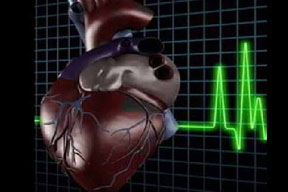 WASHINGTON: Children with favorable psychosocial experiences may have better cardiovascular health in adulthood, scientists say.
WASHINGTON: Children with favorable psychosocial experiences may have better cardiovascular health in adulthood, scientists say.
Positive psychosocial factors include growing up in a family that practices healthy habits, is financially secured, provides a stable emotional environment, and where children learn to control aggressiveness and impulsiveness and fit in socially.
In a Finnish study, participants with the most psychosocial advantages in youth scored higher on an ideal cardiovascular health index in adulthood than those with the least psychosocial advantages.
To calculate “ideal cardiovascular health,” researchers used the American Heart Association’s Life’s Simple 7: being active, controlling cholesterol, eating healthy, controlling blood pressure, losing weight, reducing blood sugar and stopping smoking.
Results from the study found those with the most psychosocial advantages in childhood had 14 per cent greater chance of being at normal weight as an adult; 12 per cent greater chance of being a non-smoker as an adult; and 11 per cent greater chance to have a healthy glucose level as an adult.
“The choices parents make have a long-lasting effect on their children’s future health, and improvement in any one thing can have measurable benefits,” said Laura Pulkki-Raback, study senior author and research fellow at the University of Helsinki in Finland.
“For instance, if an unemployed parent gets steady employment, the effect may be huge. If he or she also quits smoking, the benefit is even greater. All efforts to improve family well-being are beneficial,” she said.
Researchers initiated the project with 3,577 children ranging in age from 3-18. They measured six factors: socioeconomic status, emotional stability, parental health behaviors, stressful events, self-regulation of behavioral problems and social adjustment.
Twenty-seven years later, researchers assessed 1,089 of the participants 30-45 years old to determine their level of ideal cardiovascular health.
Favorable socioeconomic status and self-regulatory behavior, meaning good aggression and impulse control, in youth were the strongest predictors of ideal cardiovascular health in adulthood.
Early experiences appear to have cardiovascular health benefits for all people. The results also highlight the importance of early life stages – periods during which other studies have proven cardiovascular diseases begin to root. -PTI






